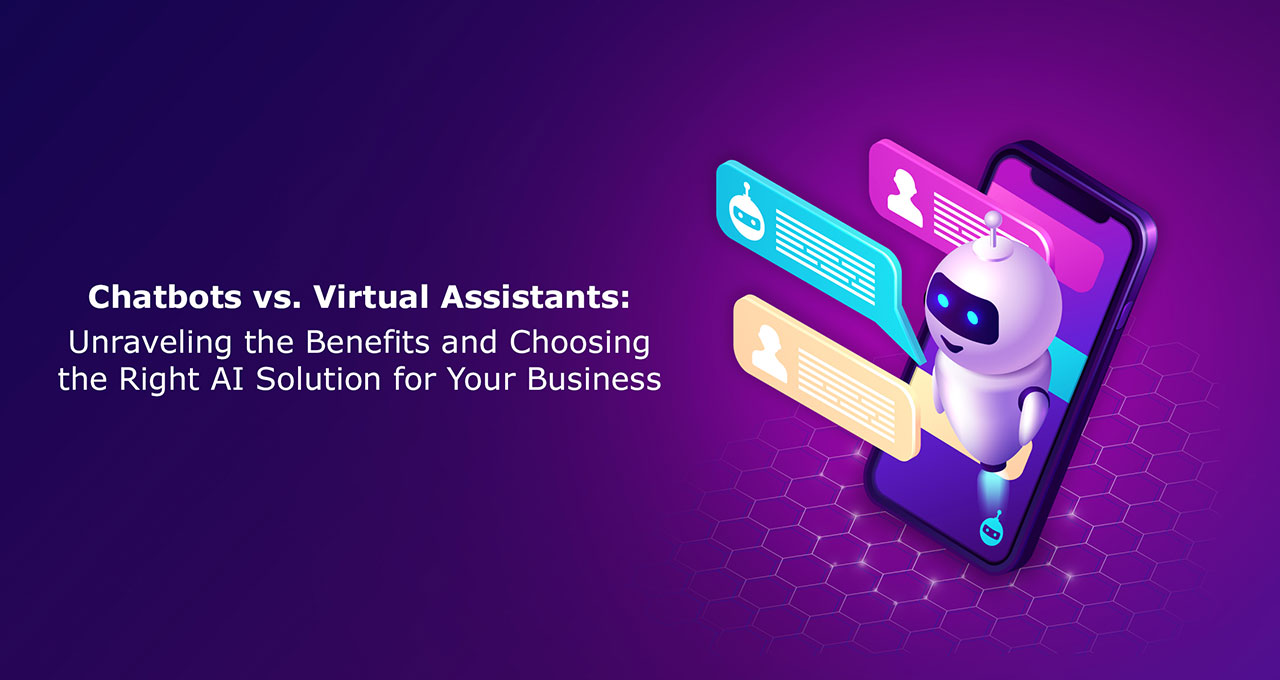
Image Credit: Image by upklyak on Freepik
In today’s rapidly evolving technological landscape, businesses are constantly seeking innovative ways to enhance their operations and improve customer experiences. Two popular artificial intelligence solutions that have gained significant traction in recent years are chatbots and virtual assistants. These AI-powered applications are revolutionizing the way businesses interact with their customers and streamline their processes.
Chatbots are software applications designed to simulate human conversation and provide automated responses. They can be deployed across various channels, such as websites, messaging apps, and social media platforms, to engage with customers in real-time. On the other hand, virtual assistants, like Siri and Alexa, are voice-activated AI applications that perform tasks and provide information through natural language processing.
Understanding the Benefits of Chatbots and Virtual Assistants
Implementing chatbots and virtual assistants in your business can offer a wide range of benefits. Firstly, these AI solutions can significantly enhance customer engagement. By providing instant responses and personalized interactions, chatbots and virtual assistants can improve customer satisfaction and loyalty. They can handle multiple inquiries simultaneously, ensuring prompt and efficient service.
Furthermore, chatbots and virtual assistants can operate 24/7, eliminating the limitations of human availability. This round-the-clock support ensures that customers can receive assistance and information at any time, contributing to improved customer experiences. Additionally, these AI solutions can handle repetitive tasks, freeing up human employees to focus on more complex and meaningful work.
The Role of Conversational AI in Customer Engagement
Conversational AI, which encompasses chatbots and virtual assistants, plays a crucial role in enhancing customer engagement. By utilizing natural language processing and machine learning algorithms, these AI solutions can understand and interpret customer queries, providing accurate and relevant responses.
Conversational AI enables businesses to offer personalized experiences by tailoring responses based on individual preferences and previous interactions. This level of customization not only increases customer satisfaction but also strengthens brand loyalty. Additionally, chatbots and virtual assistants can collect valuable data on customer behavior and preferences, allowing businesses to gain insights for targeted marketing campaigns and product development.
Pros and Cons of Using Chatbots and Virtual Assistants
As with any technology, chatbots and virtual assistants have their own set of advantages and disadvantages. One of the main advantages is their cost-effectiveness. Implementing AI solutions can significantly reduce operational costs since they require minimal human intervention. Moreover, chatbots and virtual assistants can handle a large volume of inquiries simultaneously, improving efficiency and reducing response times.
However, a potential drawback of these AI solutions is the lack of human touch. While chatbots and virtual assistants provide quick and accurate responses, they may not possess the empathy and emotional intelligence that human interactions offer. In certain situations, customers may prefer speaking to a real person, especially when dealing with complex or sensitive issues.
Use Cases for Chatbots and Virtual Assistants in Different Industries
The versatility of chatbots and virtual assistants allows businesses across various industries to leverage their benefits. In the e-commerce sector, these AI solutions can assist customers in finding products, offering recommendations, and facilitating the purchasing process. In the healthcare industry, chatbots can provide preliminary diagnoses, answer common medical questions, and schedule appointments.
The travel and hospitality industry can benefit from chatbots and virtual assistants by providing booking assistance, travel recommendations, and personalized itineraries. Additionally, in the banking and finance sector, these AI solutions can handle routine customer inquiries, process transactions, and provide financial advice. The possibilities are vast, and businesses can tailor chatbots and virtual assistants to suit their specific needs and industry requirements.
Decision-Making Factors for Choosing the Right AI Solution
When selecting the ideal AI solution for your business, several factors should be considered. Firstly, it is essential to evaluate your business needs and objectives. Determine the specific tasks and interactions you wish to automate and the level of customization required. Additionally, consider the scalability and integration capabilities of the AI solution to ensure it aligns with your future growth plans.
Another crucial factor is the ease of implementation and user-friendliness of the chosen AI solution. It should be intuitive and straightforward for both customers and employees to interact with. Moreover, consider the technical support and maintenance provided by the AI solution provider to ensure smooth operations and timely troubleshooting.
Evaluating Business Needs for Chatbots or Virtual Assistants
To evaluate whether chatbots or virtual assistants are more suitable for your business, analyze the type of interactions you anticipate. If your customers primarily engage through written channels, such as websites and messaging apps, chatbots may be more effective. On the other hand, if your customers prefer voice interactions, virtual assistants would be the better choice.
Additionally, consider the complexity of the inquiries and tasks involved. If your business deals with intricate and multi-step processes, virtual assistants with natural language processing capabilities would be more beneficial. However, if your business requires quick and straightforward responses, chatbots can efficiently handle such interactions.
Balancing Human Interaction with AI for Enhanced User Experience
While AI solutions like chatbots and virtual assistants offer numerous benefits, it is crucial to strike a balance between automated interactions and human touch. Certain customer inquiries or situations may require human intervention, such as complaints or sensitive issues. Offering seamless transitions between AI and human agents can ensure a more personalized and satisfactory user experience.
Moreover, incorporating sentiment analysis into AI solutions can help gauge customer emotions and direct interactions accordingly. By detecting frustration or dissatisfaction, chatbots and virtual assistants can escalate the conversation to a human agent, ensuring the best possible resolution for the customer.
Chatbots and Virtual Assistants in Customer Support
One area where chatbots and virtual assistants have made a significant impact is customer support. These AI solutions can handle a large volume of inquiries, reducing the need for human agents to handle routine and repetitive tasks. This allows human support agents to focus on complex issues and provide more personalized assistance.
Chatbots and virtual assistants can provide instant responses to common questions, offer self-service options, and provide relevant information to customers. By automating these processes, businesses can improve response times, increase customer satisfaction, and reduce support costs. However, it is crucial to ensure that the AI solutions are continuously updated and trained to handle evolving customer queries.
Implementing an Effective AI Strategy for Your Business
To implement an effective AI strategy for your business, it is essential to define clear objectives and goals. Determine the specific tasks and interactions you wish to automate and the desired outcomes. Conduct thorough research on available AI solutions and their capabilities, ensuring they align with your business needs.
Furthermore, it is crucial to train and continuously update chatbots and virtual assistants to ensure accurate and relevant responses. Monitor their performance and collect feedback from customers to identify areas of improvement. Regularly analyze data and metrics to measure the success of the AI implementation and make necessary adjustments.
Conclusion: Finding the Perfect AI Solution for Your Business Needs
Chatbots and virtual assistants offer tremendous benefits to businesses in terms of customer engagement, operational efficiency, and cost-effectiveness. These AI solutions, powered by conversational AI, revolutionize the way businesses interact with their customers and streamline their processes.
By understanding the pros and cons of using chatbots and virtual assistants, evaluating business needs, and considering decision-making factors, businesses can choose the ideal AI solution for their specific requirements. Striking a balance between automated interactions and human touch is crucial for providing enhanced user experiences.
Implementing an effective AI strategy involves defining clear objectives, selecting the right AI solution, and continuously training and updating the AI applications. By embracing chatbots and virtual assistants, businesses can unlock their full potential and stay at the forefront of customer engagement and satisfaction.
At GoPhygital, we specialize in creating bespoke solutions that meet your specific requirements. Let us help you bring your idea to life. You can reach out to us here.

